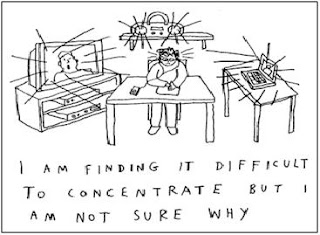Barriers Of Communication
To communicate effectively, you need to prevent or reduce the effect of communication barriers as much as possible. For example, for an audience to hear you, your voice should be clear and loud enough, without any distortion or interference. Therefore, it is important not to position the mouthpiece of a telephone under your chin and, in direct communication; you should face your audience. Communication is the key factor in the success of any organization. When it comes to effective communication, there are certain barriers that every organization faces. People often feel that communication is as easy and simple as it sounds. No doubt, but what makes it complex, difficult and frustrating are the barriers that come in its way. Various barriers can impact on interpersonal communication, including background noises, distractions and lack of concentration.Background Noise
Background noise should not be underestimated, even a slight continuous noise, such as the humming of an air conditioning unit or the ticking of a clock, can distract an audience. Background noise in the homes or businesses of your customers can be a barrier to communication. For example, you may call a customer who: bullet point.
- Has a radio turned up high...
- Has a lawn mower or other electrical equipment in the background...
- Has a crying baby...
- Works on a noisy construction site.
Noise can be a barrier to communication from your end as well. Many customer contact centres are partitioned to help cut down on the noise created by ringing phones and agents talking. The more modern contact centres are architecturally designed to reduce noise levels. If there is a lot of background noise than the receiver may not hear what the sender is saying. Different types of background noise, such as the running of a printer or coffee machines can block out what a speaker is saying, by diverting the group’s attention and affecting the in-take of information from the group. Many times it is difficult to have a meaningful conversation due to a noisy location. Noise comes in many forms: from people, equipment, street noise and more.
Distractions
Distractions (such as someone walking into a meeting late or leaving unexpectedly, the arrival of the tea trolley or a mobile phone beeping) can interrupt the flow of thought of an audience and, momentarily, they could stop listening to you. As soon as that happens, communication will falter and you, as the speaker, might feel the need to repeat part of the message. Distractions can often create a barrier over communication, limiting the in-take of information of that person. Distractions include doing something unintentionally, such as spilling coffee on the table, will often cause a distraction and break the flow of the work. Also, signs of boredom such as tapping on the table or fidgeting can pose as a distraction for other people, it also blocks out your level of in-take. Finally, signs of nervousness when you are speaking or preparing to speak, including shuffling your papers can distract other people’s concentration. We get distracted by what is going on outside (our surroundings) and inside ourselves. What’s outside that distracts us while trying to listen to someone? Noises, temperature, or what other people are saying or doing. What’s inside that distracts us from listening to someone? Thoughts, thoughts and more thoughts. Thoughts such as memories, judgments, opinions, expectations, worries, fears, even thoughts about thoughts. Holding ones attention today is difficult enough without distractions. Some of the common distractions are:
• Noise: Many times it is difficult to have a meaningful conversation due to a noisy location. Noise comes in many forms: from people, equipment, street noise and more.
• Noise: Many times it is difficult to have a meaningful conversation due to a noisy location. Noise comes in many forms: from people, equipment, street noise and more.
• Visual: It can be tough to concentrate when there is a lot of activity or other visual distractions in the area. As with noise, move to a place where there are less visual distractions.
• Stress: The stress in someone’s life can make it difficult to concentrate. Stress can be for many reasons such as family issues, work problems, financial concerns, illness of self or a family member, and more.
• Other distractions: There are many other distractions that can draw needed attention away from conversations.
Lack of Concentration
Lack of concentration from your audience will also hinder communication. It is important to maintain concentration levels despite any distractions. The length of a conversation or communication is important the recipient can only take in so much information at a time and anything beyond that is counterproductive. For example, a short verbal rebuke might prove useful but the recipient is likely to lose concentration if this turns into a lecture on behaviour. This also holds true for written communications. If you can convey your message on one page of A4, then do so. The recipient of a two-page letter will have lower concentration levels when they turn the page. A lack of concentration results in poor listening skills and additional arguing. Even though conflicts are major barriers to communication, it is only one type of many you will find in conversations.



No comments:
Post a Comment